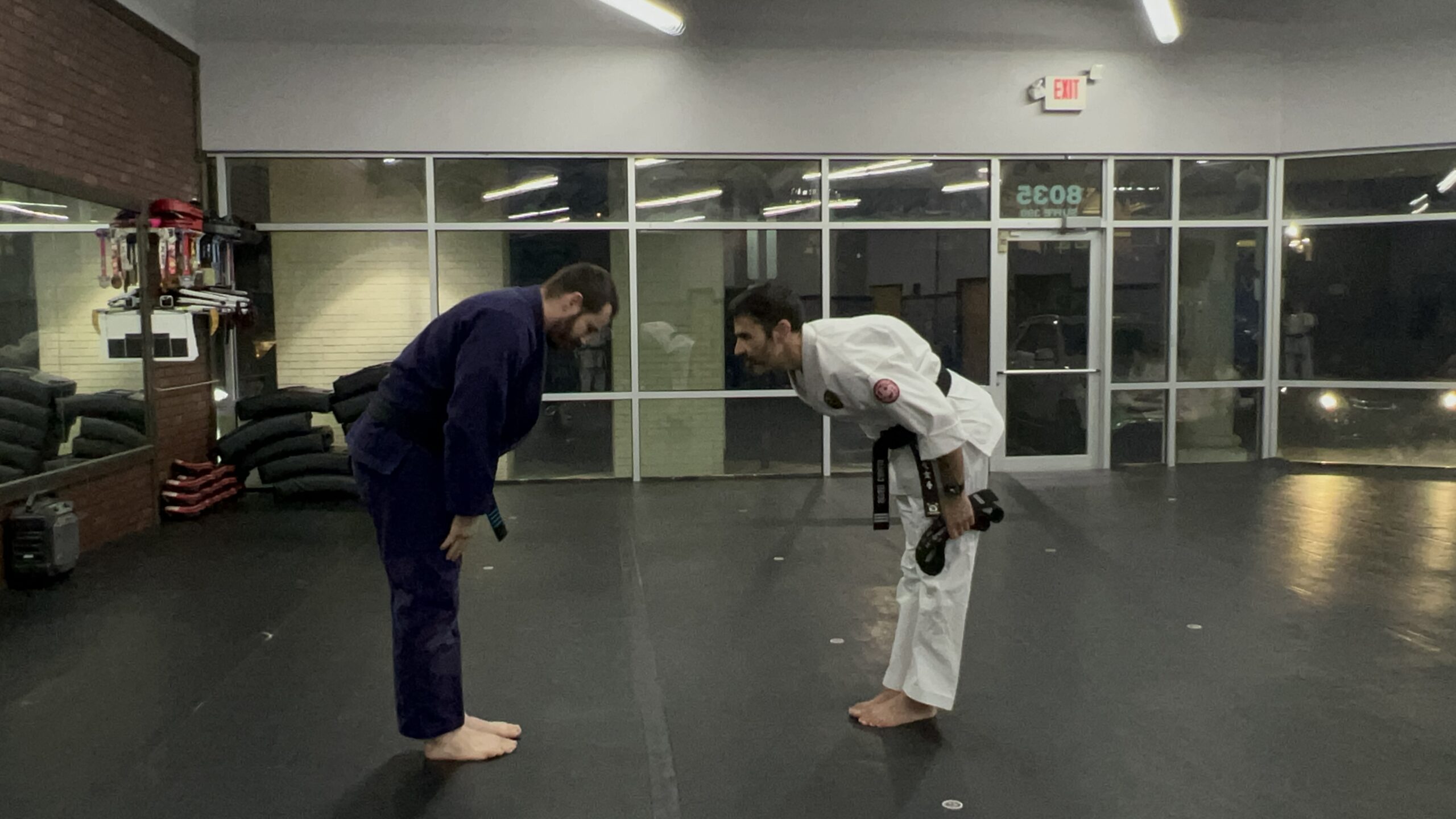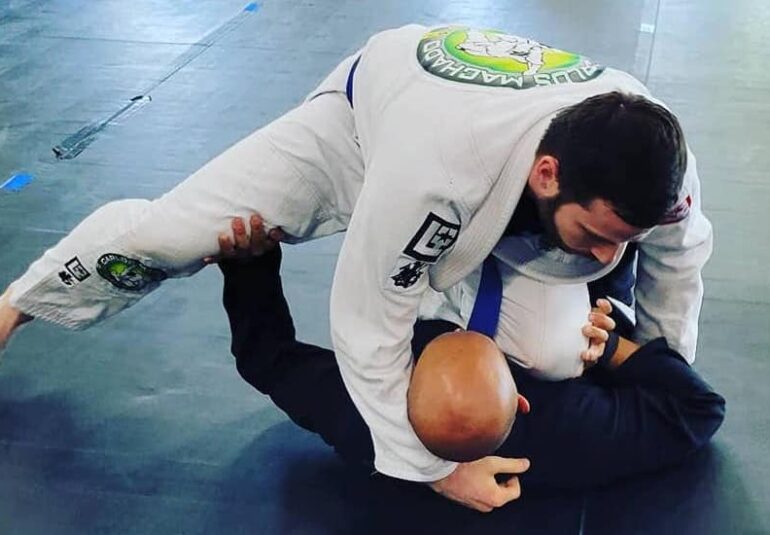
- 298
Martial arts are often seen as a transformative discipline—offering not just physical strength but mental clarity, discipline, and resilience. However, many adults find it challenging to fully immerse themselves in martial arts training. From physical limitations to lifestyle constraints, here are several reasons why it can be tough for adults to pursue martial arts, despite their benefits.
Physical Challenges and Recovery Times
As we age, our bodies naturally face certain limitations. While youth brings flexibility, endurance, and quicker recovery times, adulthood often means stiff muscles, slower healing, and increased susceptibility to injuries. Martial arts can be physically demanding, requiring flexibility, agility, and endurance—qualities that can diminish with age. Flexibility and Joint Health: Many martial arts disciplines, such as Brazilian Jiu-Jitsu or Taekwondo, require a significant amount of flexibility. For adults who haven’t maintained flexibility, performing high kicks or deep stretches can be frustrating and even painful. Additionally, joint problems like arthritis or old injuries can become barriers to consistent practice.
•Recovery Time: Recovery after intense martial arts training takes longer for adults. Where a teenager might bounce back from muscle soreness in a day or two, an adult may need more time, which can make consistent training sessions feel daunting.
Time Constraints
For many adults, time is a precious commodity. Between careers, family responsibilities, social obligations, and personal downtime, finding the hours to dedicate to martial arts can be a significant hurdle.
•Balancing Responsibilities: Unlike younger students, adults often juggle multiple commitments. Carving out regular time for classes, especially in disciplines that require frequent training to progress, can feel overwhelming. The idea of practicing martial arts while trying to maintain a work-life balance can discourage adults from even starting.
•Lack of Time for Practice: Martial arts requires dedication beyond just showing up for class. Students need to practice techniques, drills, and forms on their own time to improve. For adults, finding the time to practice outside of scheduled classes can be tough.
Mental Blocks and Humility
Martial arts training often involves learning new skills, unlearning bad habits, and being open to failure—all of which can be mentally challenging for adults.
•Fear of Failure: As adults, we tend to become more self-conscious about failing or looking “bad” at something, especially in front of others. Starting from scratch in martial arts can feel intimidating, especially when training alongside younger or more experienced individuals. This mental hurdle can keep many adults from progressing or even trying martial arts in the first place.
•Humility: Martial arts is a humbling experience, as it often places students in situations where they are pushed out of their comfort zones. Adults, who may be more set in their ways and expectations, might find it challenging to embrace the mindset of a beginner, especially when they are used to being proficient in other areas of their lives.
Fear of Injury
The physicality of martial arts means that injuries are a common concern, particularly for adults. A slip or a bad fall can lead to injuries that could potentially impact work or family life, so many adults are wary of engaging in high-contact disciplines.
•Risk of Injury: While proper training techniques can minimize injury risks, the fear of potential harm—whether from sparring, intense physical exertion, or improper technique—can make adults hesitant to push themselves in training.
•Lingering Effects of Old Injuries: For those who had previous sports-related injuries or chronic conditions, martial arts can exacerbate old wounds, making them more cautious and reluctant to fully commit.
Ego and Pride
Adults are often more aware of their egos than younger practitioners, which can make learning a martial art challenging. The process of learning martial arts involves a lot of trial, error, and humility.
•Comparisons to Others: In a class with mixed ages and abilities, adults might find themselves comparing their progress with that of younger or more skilled practitioners, leading to frustration. Ego can get in the way of learning, making it difficult to stay motivated when progress feels slow.
•Taking Criticism: Receiving feedback and corrections from instructors or peers is a natural part of learning martial arts, but for adults who may be more set in their ways, taking criticism—especially in a public setting—can be difficult.
Financial Constraints
Martial arts training can be a financial investment. Between monthly memberships, equipment costs (such as uniforms, belts, protective gear), and tournament fees, the financial burden can be a challenge for adults who already have numerous financial responsibilities.
•Costs of Training: The cost of training in martial arts can vary depending on the discipline, gym, or location, but it can add up. Adults who are already managing household expenses, mortgages, and family needs may find it hard to justify the extra expense for martial arts training.
Learning New Movement Patterns
For adults, learning the intricate movements of martial arts can be mentally and physically taxing. Many adults have settled into movement patterns and habits over years, and unlearning these to adopt the fluid, coordinated movements required in martial arts can feel unnatural.
•Muscle Memory: Adults may have ingrained muscle memory from other sports or daily activities, which can conflict with martial arts techniques. Retraining the body to move in new ways—whether it’s learning how to roll safely in jiu-jitsu or mastering the stances in kung fu—takes time and patience.
Social Intimidation
Walking into a martial arts dojo or gym for the first time can feel intimidating for adults, especially if they are surrounded by younger, more experienced practitioners.
•Feeling Out of Place: Many martial arts schools attract younger students, which can create a social barrier for older adults. Adults may feel self-conscious about training alongside younger people or find it hard to relate to them, leading to a sense of isolation.
•Finding the Right Environment: It can take time to find a martial arts school that offers the right balance of support and challenge for adult learners. The wrong environment can make it harder for adults to feel comfortable and progress.
Despite these challenges, training in martial arts as an adult can be immensely rewarding. While physical limitations, time constraints, and mental hurdles may present obstacles, the personal growth, fitness, and discipline gained through martial arts often outweigh these challenges. By embracing the mindset of a lifelong learner and finding a supportive community, adults can overcome the difficulties of martial arts training and unlock its many benefits.

